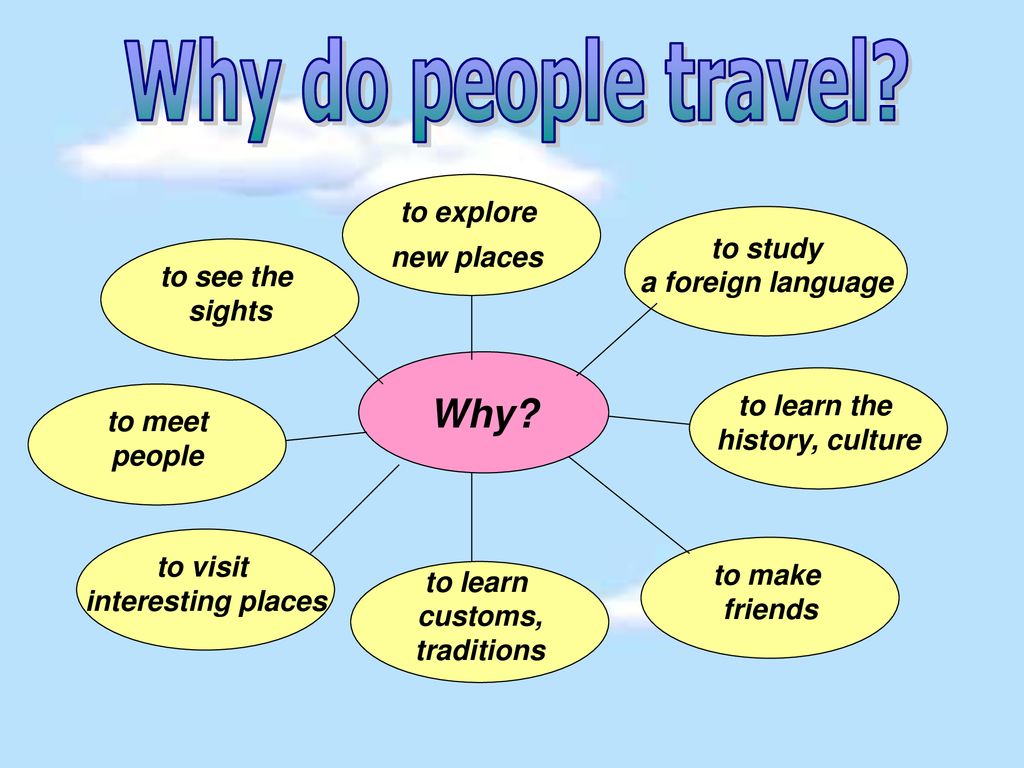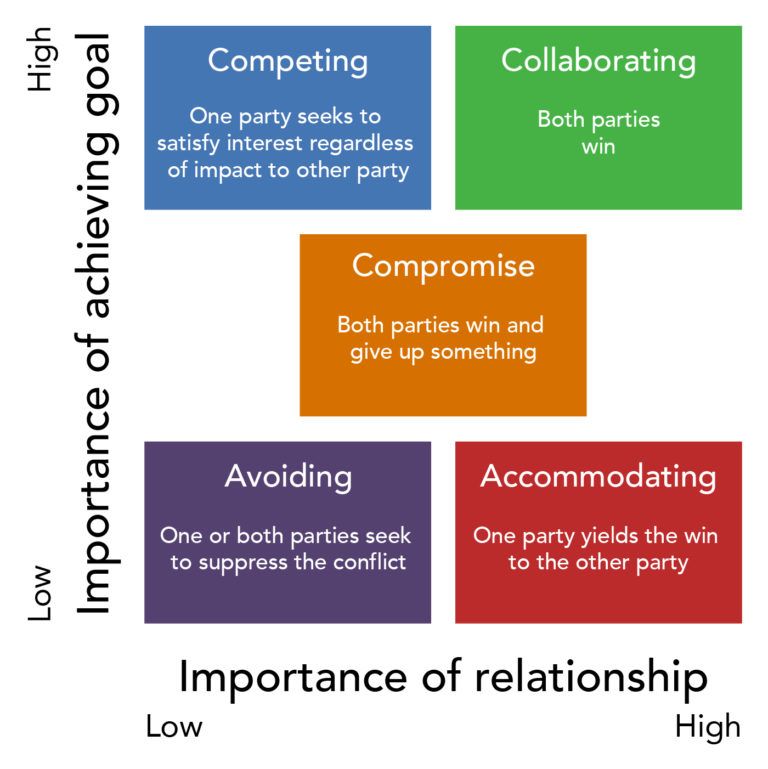Finding yourself after the empty nest
How to cope when kids fly the coop
Jump to section
What is empty nest syndrome?
What are the symptoms of empty nest syndrome?
How long does empty nest syndrome last?
3 stages of empty nest syndrome
Are some parents more susceptible than others?
How to deal with empty nest syndrome
Being a parent sure has its ups and downs. From hearing their first words to waving goodbye on their first day as a senior in high school, having children is full of significant life events.
But there’s one big event in family life that many parents struggle with. And that’s when their children leave home.
Empty nest syndrome is the grief that many parents feel when their children move out of the home. While it isn’t a clinical diagnosis, it is a common phenomenon in which parents experience sadness and loneliness. They grieve the loss of a lifestyle and relationship that was part of their identity.
Let’s look at some symptoms of empty nest syndrome and how you can healthily deal with your children leaving the nest.
What is empty nest syndrome?
Empty nest syndrome is the sadness or emotional turmoil that parents grapple with in the wake of their children growing up and moving out of their family home. ‘Nest’ refers to the popular saying that children 'spread their wings’ when they grow up and move on.
We often hear the words ‘empty nest syndrome’ when the end of the high school or college season draws near. It stirs up some mixed feelings: anxiety, excitement, relief, and sadness.
On the one hand, you are proud to see your child go out into the world as an independent young adult. On the other hand, you can’t help but worry over their well-being while grieving the closeness that came with living under the same roof.
The good news is that you are not alone in your experience of empty nest syndrome.
What are the symptoms of empty nest syndrome?
Empty nest syndrome manifests in different ways for different people. Let’s look at some common symptoms.
Loneliness
Following the departure of your beloved child, you may feel overwhelmingly alone. It can be isolating to wake up one morning and remember that your children are no longer living at home with you.
It can be isolating to wake up one morning and remember that your children are no longer living at home with you.
Emotional distress
Empty nest syndrome can be a rollercoaster ride. One minute you are crying at the sight of a family photograph, and the next, you are fantasizing about what to do with your newfound space and freedom. This might lead you to feel emotionally exhausted.
A loss of purpose
Being a parent, particularly a stay-at-home parent, is a full-time job. When you no longer see your kids daily, it can leave an enormous vacuum. This void, or sense of nothingness, may cause you to feel as if you are lacking in purpose.
Fear of a lack of control
When your child moves away, you can no longer keep tabs on them. This can feel like a great loss of control for many parents. You may feel tempted to check up on them every hour and want to know their every move.
Worry and anxiety
Hopefully, you trust your child and have faith in your ability to raise a capable individual.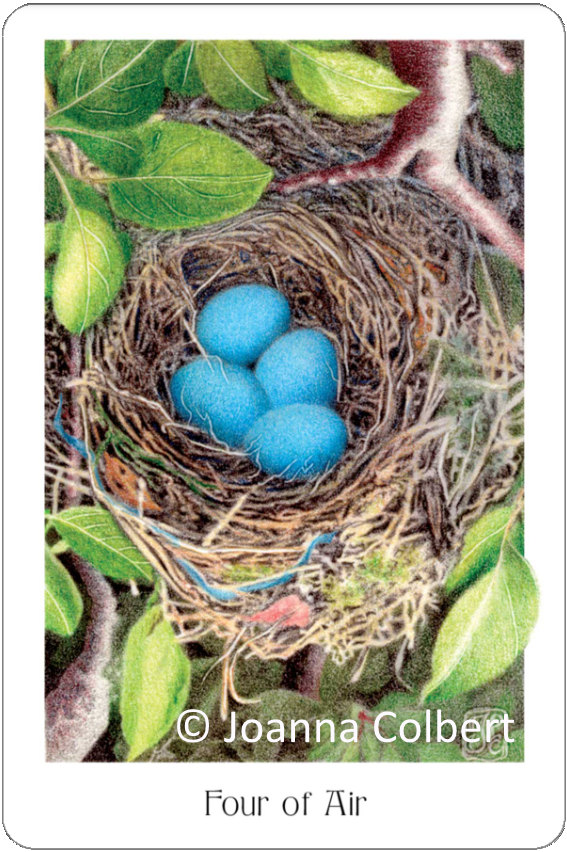 Nonetheless, you may feel like you are wading through a fast-flowing river of worry and anxiety. It’s normal for your imagination to run wild and catastrophize minor troubles.
Nonetheless, you may feel like you are wading through a fast-flowing river of worry and anxiety. It’s normal for your imagination to run wild and catastrophize minor troubles.
Depression
For the most part, a parent will spend around 18 years looking after and living with their child. There is a deep sense of grief and sadness that comes with learning to love them from a distance.
How long does empty nest syndrome last?
Every parent will have a different experience of empty nest syndrome. It may only last a few weeks for some, while it may persist for years for others.
Typically, parents will experience the symptoms of empty nest syndrome for a few months. ‘A few months’ may be anything from two months to a whole year.
One survey found that it takes parents an average of three months to get used to an empty house.
However, empty nest syndrome can start as an anticipatory emotional response before your child has actually moved out.
It is completely okay if it takes you a bit longer to overcome these feelings. Everybody has their own timeline for processing loss and adapting to a change of life stage or change in lifestyle.
Everybody has their own timeline for processing loss and adapting to a change of life stage or change in lifestyle.
As much as possible, don’t time-pressure yourself into a state of false emotional well-being.
That being said, it’s important to realize that clinical depression may be misconstrued as empty nest syndrome. 5% of the global population struggles with depression. If your symptoms persist for a prolonged period of time, we highly advise that you seek professional guidance.
3 stages of empty nest syndrome
According to Carin Rubenstein’s widely renowned book, Beyond the Mommy Years, there are three stages of empty nest syndrome:
1. Grief
When your child first leaves home, you are likely to feel overcome by feelings of sadness and loss. You may be feeling teary-eyed and emotionally triggered by the simplest things.
This sadness could make you withdraw from the world for some time as you try to deal with the immense change that has taken place in your life.
2. Relief
After a few months have passed, you may find yourself relishing your newfound freedom.
Instead of the mental load from having to drive your kids everywhere and never-ending housekeeping, you now have time for self-care and hobbies. This newly liberated lifestyle is bound to inspire a sense of relief.
3. Joy
Once you have ridden the roller-coaster of sadness, reprieve, and freedom, you should reach the stage of joy. Hopefully, you have settled into your new self-determined rhythms. Perhaps you might be establishing new social networks or finally booking that couple’s getaway. Or maybe, even a solo vacation.
You can rest assured that with your conscious parenting, you have sent your child out into the world with all the necessary love, knowledge, and support.
Are some parents more susceptible than others?
No one can predict their experience of empty nest syndrome. However, it has been noted that a few types of parents are slightly more susceptible to experiencing the symptoms of empty nest syndrome.
Helicopter parents
Helicopter parents pay incredibly close attention to the behaviors and problems experienced by their child. They tend to intervene at the minor hint of struggle or trouble.
They ‘hover overhead,’ hence the name. Their instinct to protect and nurture may override the rational voice in their head that assures them their child needs space.
Stay-at-home parents
The more time you spend with your children, the more you feel responsible for meeting all their needs. You become each other’s full-time companion.
Parenting is, essentially, your job. Realizing that your role in their lives has to shift dramatically is challenging to accept.
Single parents
As a single parent, you may feel solely responsible for your child’s well-being and happiness. When they leave, you cannot go through the emotional struggles with your child’s other parent. This can make the feelings of loneliness and confusion worse.
As 90% of single parents are women, it is more likely that a mother will experience heightened symptoms of empty nest syndrome.
Parents who rely on their parent roles for self-identity
Many parents, particularly full-time parents, get their sense of purpose and motivation from their roles as parents. Parenthood is integral to their sense of identity. When they cannot assume that role, it can trigger feelings of insecurity and self-doubt.
Parents with marital struggles
In some marriages, the only thing keeping the relationship going is the mutual love for their children. Often, parents want to protect their children from the pain of parental divorce.
Even in a less extreme instance, a struggling relationship may worsen feelings of depression and isolation. And the struggles within the relationship may become more apparent once the children leave the house.
How to deal with empty nest syndrome
As difficult as it is, there are ways for you to cope with empty nest syndrome. Here are some ideas:
1. Make social connections
Use your free time to reconnect with old friends. Understandably, parents may neglect their social relationships as they barely have time for themselves, let alone others.
Understandably, parents may neglect their social relationships as they barely have time for themselves, let alone others.
Try to enter a new social space that offers new connections. Investing in friendships is a healthy distraction, and it alleviates feelings of loneliness.
2. Seek professional help
If your symptoms of empty nest syndrome are severe and they persist, you should seek professional guidance. A trained counselor can offer grief support and help you manage your emotions.
The symptoms of depression may be confused with the symptoms of empty nest syndrome, and if you suffer from the former, you can utilize safe and effective therapies.
3. Set goals for the future
Adopting a forward-looking mindset alleviates feelings of grief. It sparks motivation and promotes a healthy sense of perspective. Setting and achieving goals also encourages the development of your authentic identity.
4. Take up a new hobby or career
Exploring different facets of your identity and expanding your interests can be an incredibly fulfilling journey.
Try out a variety of new activities in your area, whether that’s a book club or yoga classes. A new physical activity is a wonderful way of broadening your social circle while maintaining your physical health.
Or maybe a new career path may be the self-confidence boost you need. Changing your career allows you to embody an empowered side of yourself that you may have neglected.
5. Reconnect with your partner
An empty nest is a perfect opportunity to spend quality time with your significant other. Use this new space and time to reignite the romance in your relationship.
This is the ideal time to create a loving home environment and a mutually supportive, compassionate relationship. In fact, 63% of empty nesters report they became closer with their spouse after their children left home.
6. Practice self-care
Set aside time to take care of yourself. This could mean taking a relaxing bubble bath, cooking a delicious meal, going for a run, or journaling.
Everyone has a preferred self-care ritual. Find what works for you.
7. Focus on the positives
You are allowed to feel sad about your child leaving home. That being said, their moving out is a normal and positive change. You should celebrate your child’s independence. Feel excited about all the opportunities that await them with learned optimism.
After all, you deserve a huge congratulations for getting them to this point!
8. Keep in touch with your children
Thankfully, we live in an age of technology that allows for effortless global communication. Your child may live one block away or on the other side of the planet. Either way, you can still stay in contact.
Physical distance does not equate to emotional distance. Stay in touch to show your child that you still love them unconditionally.
Empty nest syndrome is normal: you are not alone
While parents should encourage their children to blossom into young adults with their own independent life, sending children off into the world can be difficult.
If you are experiencing the emotions of empty nest syndrome, it’s important to remember that you are not alone in feeling a sense of loss.
Although it is common in many parents around the world, don’t feel pressured to compare your journey to others or to ‘snap yourself out of it.’
Invest in self-care and healthy relationships, and focus on the positive aspects of your child’s young independence.
If you need additional support, get in touch with BetterUp. One of our expert coaches will be happy to support you.
33 Things to do after the Kids Leave Home
I don’t know about you, but seeing the return of back-to-school supplies in stores always makes me feel reflective. This time of year brings back memories of dropping our youngest off at college and the tearful ride back home, knowing I was leaving behind not just our daughter but a time of life I loved so much. And while I’m not wild about the term empty nest, it’s a pretty good description of what our home felt like for the next several months.
That was over ten years ago. And, honestly, those feelings of sadness and loss–sometimes called empty nest syndrome–still come up now and then, especially after a holiday or family event when everyone gathers and then leaves again.
The best advice I have for friends whose kids are leaving home is to just let yourself feel all the feelings. Shed your tears for the end of this chapter.
You need to respect and cherish your life’s seasons. But be careful not to let yourself get stuck there. At some point you have to allow the next chapter to begin.
Believe it or not, eventually you’ll find things to love and appreciate about an empty nest. In the past few years, my life has blossomed in ways I never imagined.
And apparently I’m not alone, because research shows that women over 50 are among the happiest and most content!
If you’re currently in the middle of it all, wondering what’s next as an empty nester and how long these feelings will last, let me encourage you–there is life after your children leave home!
While becoming an empty nester is a life-changing experience, it doesn’t have to throw you off track.
There’s so much happiness in store for you! That’s why I wrote this post–to encourage you to focus on what’s next. God loves us too much to let us stay where we are. He’s always nudging us forward and working things out for our highest good.
If you stay open, this stage of life can be an amazing time of growth and new possibilities. This is your opportunity to reinvent yourself and start fresh.
Now is the time to rediscover all the activities you set aside while you were raising your kids. Can you remember what they were? After our girls left home, I had a hard time recalling what I enjoyed doing before we had children!
To help you get started, I made a list of things to do after the kids leave home. These are the things that helped me move past heartache and find joy and purpose as an empty nester.
I realize many of these ideas might seem obvious, but when you’re in the middle of it all, sometimes you can’t think of anything productive or positive to do, so I hope this list opens your mind and heart to some of the possibilities available to you after your kids leave home.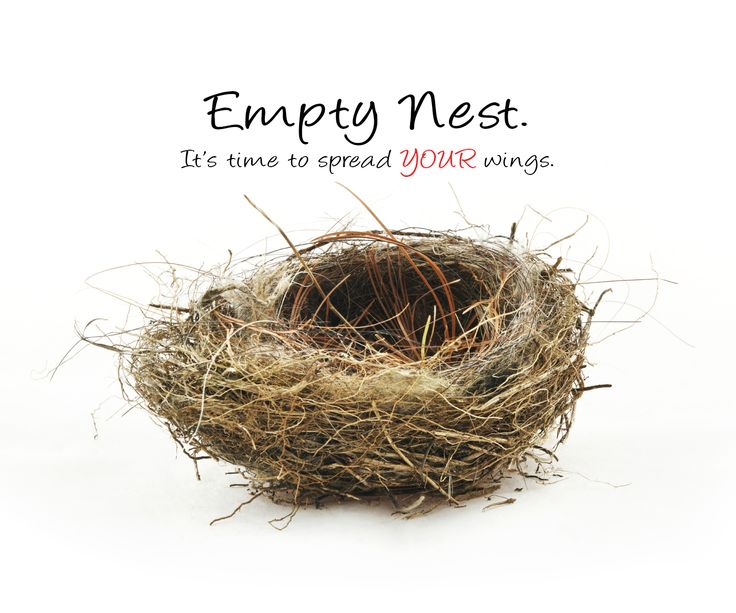
1. Volunteer
I can’t think of a better way to move past heartache than by reaching out and helping others who are in need, whether it’s an elderly person who could use some groceries or company, a neighbor who’s going through a hard time, or a teacher who needs an extra pair of hands in the classroom.
2. Travel
An empty nest provides the perfect opportunity to start planning trips to places you’ve always wanted to see. I’ve found that planning and looking forward to a getaway is almost as much fun as the actual trip!
Our Trip to Paris
After becoming empty nesters, my husband and I took a trip to Paris and Italy, which was something we’d talked and dreamed about for years. We brought home so many wonderful memories and hope to return soon!
3. Expand your culinary skills
This is the perfect time to broaden your home cooking or baking skills, try out new recipes, and discover new cuisines. Now you can use all those ingredients your kids didn’t like! Here’s a page sharing a few of my favorite recipes.
Jean Stoffer
4. Declutter your spaces
I’ve found that having too much stuff–even if it’s hidden behind a closet door–affects my energy and creativity. Decluttering our home every few months helps clear out the mental cobwebs and gives me a new outlook on life.
If you need some encouragement and motivation to declutter and get organized, here’s my post sharing How to Declutter Your Home.
Pure Salt Interiors
5. Get creative
An empty nest provides the perfect opportunity to explore or rekindle a love of hobbies like painting, calligraphy, knitting, pottery making, woodworking, sewing, cross-stitch … the possibilities are endless!
Almost everyone I know (myself included!) would like to improve their photography and photo editing skills, whether that involves learning how to use all the features on their iPhone or mastering the fancy digital camera gathering dust in a closet.
There are hundreds of online courses available through sites like Teachable, as well as local college classes, and free tutorials on YouTube sharing tips on whatever creative outlet you choose.
6. Put pen to paper
Have you ever dreamed of becoming an author? Now’s the time to start writing! You never know who is waiting to hear what you have to say.
7. Start a blog
Blogging is another great way to connect with others and share your ideas, experience, and creativity. It’s also a wonderful incentive to learn new things!
8. Plant a garden
There’s something about getting your hands in the dirt, nurturing plants, and seeing them thrive that is so satisfying!
On the same note, having potted plants and flowers indoors and on your porch and patio can bring new life to your home.
GNC Garden
9. Turn your hobby into a business
After becoming an empty nester, I took my love of interior design, writing, cooking, health, and travel and poured it into a blog and business. I think this one step, more than anything else on this list, helped me find a new sense of purpose as an empty nester.
10. Take time for self care and relaxation
Now’s your chance to enjoy some downtime, spend time sitting in the garden, appreciate the sunrise or sunset, and take long baths (without kids banging on the bathroom door!).
Pure Salt Interiors
Or, you might want to catch up on some of the binge-worthy TV series everyone’s talking about. Escape to the Chateau, The Crown, The Queen’s Gambit, and The Great British Baking Show, and The Newsroom are some of our favorites.
11. Focus on your health
My emotions were up and down as I adjusted to life as an empty nester (menopause didn’t help either!), but this book helped me balance my moods. Around this time of life, it’s also a great idea to see your doctor or naturopath to make sure your diet and hormone levels are in balance.
12. Be grateful
I’ve noticed I’m happiest when I focus on what’s going well in my life, rather than what’s not, so every day I try to write down (or at least think of ) 10 things for which I’m grateful.
13. Invite someone over for dinner
Gathering people around the dinner table is one of my favorite things to do–especially now that we have an empty nest. If you’re a little rusty in the hosting department and need some tips, I wrote a post on how to host a casual dinner party, including a few menu ideas.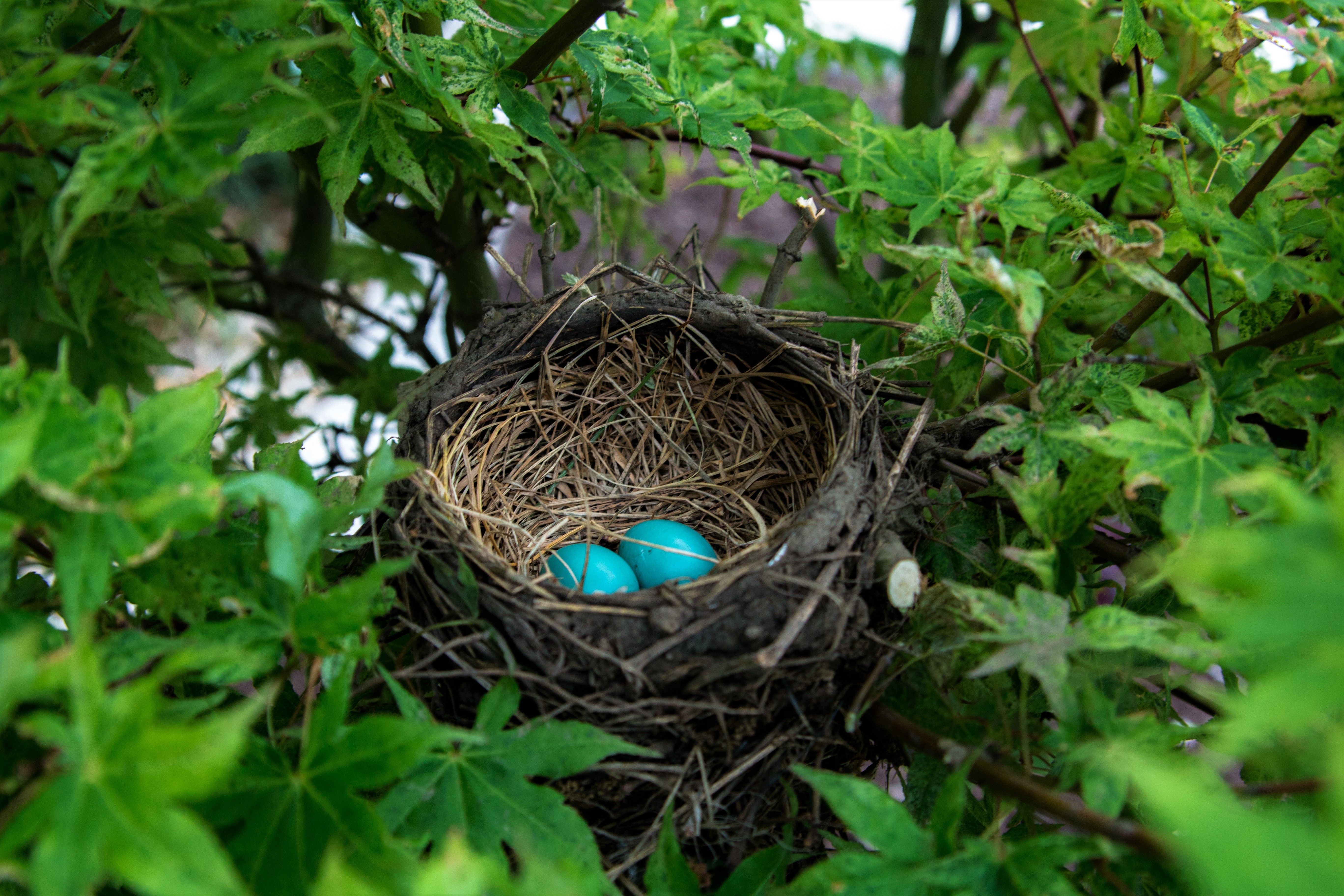
Pure Salt Interiors
14. Connect on social media
I’ve met some of the nicest women in the home décor community over on Instagram, but you might prefer YouTube, Facebook, or Pinterest. I recently discovered Jo Good, Middle Aged Minx, over on YouTube, and even though her channel is completely unrelated to interior design, I’m loving following along as she shares a slice of daily life in London!
15. Stay positive
During the day, as I’m cooking or doing things around the house, I pop in my AirPods and listen to funny, inspirational, or motivational podcasts or YouTube videos. At night, I always read something positive before I fall asleep.
And, no matter how busy I get, I try to meditate for a few minutes every day. And even I often just sit there and think about my grocery list, I do believe meditating makes me a happier and calmer person. Avoiding listening to or reading the news was also a big game-changer for me.
16. Learn a new language
My husband and I are currently watching Escape to the Chateau (on Peacock), and all the scenes of the beautiful French countryside have us dreaming of moving to France and buying a chateau!
So when my daughter told me about a free language-learning app called Duolingo, I downloaded it on my phone and started taking French lessons. Now, rather than scrolling through social media in the evening, I spend a few minutes learning something new!
Now, rather than scrolling through social media in the evening, I spend a few minutes learning something new!
17. Get moving
This is a great time to begin taking daily walks or hikes, add some strength training to your routine, take tennis or golf lessons, join a gym, or get some exercise DVDs from Amazon and work out at home. I like to begin my day with a few minutes of gentle yoga to help maintain my flexibility and balance.
18. Switch up your beauty routine
I know it sounds superficial, but a change in your makeup, hair style, or hair color can change your outlook on life! Just getting my roots touched up makes me feel like a new person! Lately, I’ve been finding some great makeup, skincare, and hair styling tutorials for women over 50 over on YouTube. Here are a few channels I enjoy: Pretty Over Fifty, Tamara’s Timeless Beauty, Dominique Sachse, Nadine Baggott.
Pure Salt Interiors
19. Update your wardrobe
Refreshing your sense of style can help you see yourself in a new light and, in turn, help you approach the world in a more confident way. One of these days, I’d love to pare down my closet and put together a high-quality capsule wardrobe for each season.
One of these days, I’d love to pare down my closet and put together a high-quality capsule wardrobe for each season.
20. Become tech savvy
Have you always wanted to learn how to use Photoshop, PowerPoint, Canva, or Excel? Now is the perfect time to master the latest apps, programs, and gadgets. Your kids will be so impressed!
Pure Salt Interiors
21. Refresh your spaces
I’ve always loved poring over home catalogs and magazines for design inspiration, but once I became an empty nester, creating surroundings that make me happy became more important to me than ever.
I’ve found that simply moving the furniture around or adding some fresh flowers or different pillows to a space can lift my spirits and give me a new outlook on life.
If you’re interested in updating your home, here’s a page sharing my decorating and design posts.
Pure Salt Interiors
22. Enjoy a brand new relationship with your kids
When my daughters were teenagers, we talked about everything, shared our daily ups and downs, and went shopping together, so when they left home I felt like I’d lost my best friends!
But I soon discovered that one of the most wonderful things about being an empty nester is getting to know your children as adults (and parents themselves).
Now we get together for coffee, plan vacations, and still go shopping together! And while our relationship has changed, it’s still rich and wonderful.
23. Strengthen your marriage
If you relegated your marriage to the back burner while you focused on your kids, an empty nest provides the perfect opportunity to reconnect with your spouse and remember why you fell in love in the first place.
This is a great time to explore new activities and hobbies as a couple. Soon after our youngest left home, my husband and I took ballroom dancing lessons at the local community college, which gave us an opportunity to connect in an entirely new way — and we laughed a lot!
24. Continue your education
This is also a great time to take some online classes, finish your degree, or pursue a brand new profession. I love learning about natural wellness, so after our girls left home I went to nutrition school and received my health coach certification!
25.
 Nurture your friendships
Nurture your friendshipsIt’s so easy to neglect friendships while we’re busy raising our kids, but an empty nest provides the perfect opportunity to reconnect with your friends — perhaps at a local coffee shop or even on the phone. One of the many benefits of being an empty nester is that now you can enjoy long conversations without interruption!
26. Meet with a financial advisor
It’s always a good idea to make sure you’ll have enough money to retire when that time comes. And, whether you’re married or single, if you don’t have a current will, this is also a great time to see an estate attorney and get that done, too.
27. Spend some time with little ones
There are many ways to spend time with children after your kids leave home, including volunteering at schools, reading to toddlers at the library, or teaching Sunday School — which is how my husband and I stayed involved with little ones after our girls grew up.
28. Connect with extended family
After your children leave home, getting together with your parents and siblings is a great way to fill the need for connection. And if your family is spread out across the country or world, you might even want to plan a reunion!
And if your family is spread out across the country or world, you might even want to plan a reunion!
29. Adopt a pet
Pet adoption, fostering, and animal rescue are great ways to fill an empty nest — and save a life, as well! Our pets are cherished members of our family, and I’ve learned that when it comes to animals, you always end up receiving much more love than you give!
Meg McSherry Interiors
30. Join a club
If you enjoy socializing, you might want to think about joining a book club, garden club, bridge club, wine club, church group, or civic organization.
Clubs are a great way to make new friends, explore an interest or hobby, learn something new, and alleviate the loneliness and boredom that can come with being an empty nester.
31. Plan an outing
Now that your kids have flown the nest, this is a great time to resume going on dates, visiting new restaurants, going to shows, and checking out the latest museum exhibits.
Whether you’re married or single, getting out of the house and doing new things — even if you go by yourself — is a great way to keep from getting stuck in a rut.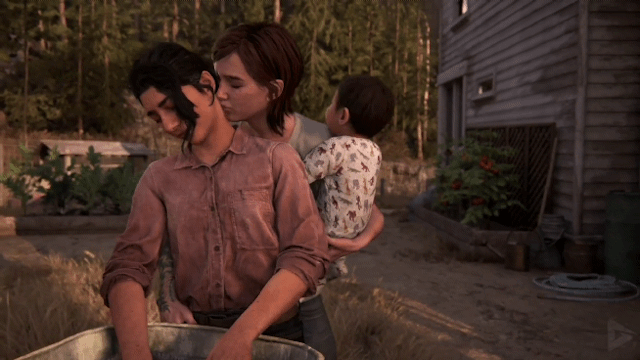
32. Take a road trip
Are there places you’ve always wanted to visit? An empty nest provides the perfect opportunity to load up the car and take a road trip, visit national parks, and see different parts of the country.
33. Lose yourself in a good book
Finally, this is your chance to read all those books that have been sitting on your nightstand for years! Reading has the ability to carry us away, inspire, and change our outlook on life.
Lately, I’m mostly into non-fiction, but when I want to immerse myself in another world, here’s a charming book series I love.
Serena & Lily
Whether you’re a new, seasoned, or soon-to-be empty nester, I hope this list gave you some encouragement and ideas of activities to do after your kids leave home.
This is your chance to start fresh and give yourself all the good books, great food, long walks, special trips, and happy memories you deserve. Wishing you much joy and love on your journey! xo Jane
P. S. If your feelings of sadness, grief, and other symptoms of empty nest syndrome are severe and/or last more than a few weeks, please seek out professional help. xo
S. If your feelings of sadness, grief, and other symptoms of empty nest syndrome are severe and/or last more than a few weeks, please seek out professional help. xo
Looking for more ideas and inspiration? Here are a few favorite posts from the blog:
How to Add a Touch of Nancy Meyers Style to Your Kitchen and Home
2023 Home Decor Trends and Design Styles You Will Love
How to Choose a Design Style that Feels Right for You
Modern Coastal Decorating Ideas for Your Home
What is Coastal Grandmother Style? (and why I love it!)
A Simple Guide to Mixing Metals in the Bathroom
Inspiring Kitchen Design Ideas for Your Next Renovation
The New Studio McGee Target Collection
Modern Bedroom Design Ideas for a Dreamy Master Suite
Modern Entryway Ideas for a Beautiful First Impression
Beautiful Living Room Decorating Ideas
Modern Dining Room Ideas for Beautiful Gatherings
Modern Patio Ideas for Beautiful Outdoor Living
activities for empty nestersafter the kids leave homeafter your kids leave the nestas new empty nestersbenefits of an empty nestblessed empty nestchildren leaving homedeal with empty nestdoes empty nest syndrome go away?empty nestempty nest activitiesempty nest definitionempty nest houseempty nest no friendsempty nest syndromeempty nest syndrome articlesempty nest syndrome for single momsempty nest syndrome marriageempty nest syndrome storiesempty nest syndrome symptomsempty nest tipsempty nest what to do nextempty nest what's nextempty nesterempty nester boredomempty nester tipsempty nestersempty-nestingfearing empty nest syndromefeeling lost empty nestfind purpose as empty nesterfinding new purpose after kidsfinding purpose as an empty nestergrown kidshobbies for empty nest coupleshobbies for empty nestershome bloghow long does empty nest syndrome last?how to deal with an empty nestjane at homejane at home blogkids leave homekids leaving homeleave the nestletting golife after childrenlifestylemid-lifemy boring empty nestreinventing yourself after empty nestsingle empty nestersstarting overthings to do for soon to be empty nesterstips for empty nesterswhat are the symptoms of empty nest syndromewhat do people do when become empty nesterswhat to do as an empty nesterwhat to do when kids leave homewhat to do when your kids leave homewhat to do when your kids leave the nestwhat to do when your nest is emptywhat to do with an empty nestwhat to do with empty nestwhat's good about an empty nest
Psychologist told how to survive the "empty nest syndrome"
Empty nest syndrome is a beautiful expression behind which hides a tangle of not very pleasant emotions and experiences of parents whose child becomes independent. Children leave to study, create their own families or simply decide to live separately. Inna Khamitova, a psychologist and director of the Center for Systemic Family Therapy, tells how to survive this period.
Children leave to study, create their own families or simply decide to live separately. Inna Khamitova, a psychologist and director of the Center for Systemic Family Therapy, tells how to survive this period.
Perhaps the empty nest syndrome lies in wait for every parent? nine0006
Inna Khamitova: This is what happens to all of us when our children grow up and leave the house. And they leave their parents in almost the same position in which they were in the first years of married life. But then they were young and not burdened with offspring. And now they have a long life behind them.
And here everything depends on what this path was like. The empty nest syndrome can flare up in full force - and the family will not survive. Either the new period will be a renaissance in relationships, will give greater freedom, greater satisfaction with life. nine0003
That is, the "empty nest" is not always a symbol of melancholy and abandonment?
Inna Khamitova: Remember when children are just growing up, how nice it is sometimes to return to an empty house, when they are, for example, in the camp or with their grandmother and you can go about your own business. So now, when they have grown up safely, your "empty nest" may well evoke positive feelings, the feeling that you have paid all family and social debts, are free from obligations and your life finally belongs only to you. But often, because of an empty nest, a person begins to feel that his life seems to be incomplete. nine0003
So now, when they have grown up safely, your "empty nest" may well evoke positive feelings, the feeling that you have paid all family and social debts, are free from obligations and your life finally belongs only to you. But often, because of an empty nest, a person begins to feel that his life seems to be incomplete. nine0003
And that life itself is now meaningless, abandoned, like that old nest from which the chicks have flown... approaching adulthood. According to statistics, the first wave of divorces occurs in the second year of marriage, but the next wave of breakups happens just after the grown-up children fly out of the nest. nine0003 It turns out that these are not the experiences of one person, but the common problem of a couple? Inna Khamitova: There are even more actors involved in this play than just spouses... What is happening? When a couple becomes parents, they are distracted from their own marital relationship and switch to parenting. The empty nest syndrome can flare up in full force - and then the family will not survive But more often, nevertheless, separation occurs, the child grows up and leaves . Inna Khamitova: ... And adults have to turn around to each other. And then there are unpleasant discoveries: for example, people realize that too many grievances have accumulated between them. Or - that they just became complete strangers to each other. Because over the past years they have completely focused on parenthood, developed as if separately and became very distant from each other. This is a crisis that almost every family goes through. People ask questions. "Why do I need this? The children have grown up, my husband is a stranger, I'll go, finally, go about my business." Or: "My wife does not understand me at all, she is a strange woman for me, I am not interested in her." Connections begin on the side, and this, as a rule, ends in divorce ... Not every family can effectively go through the period of an empty nest. Especially when their marital bond has always been very weak. nine0003 What other scenarios are possible? Inna Khamitova: Here's another option. And, finally, the happiest scenario, when people did not move away from each other, they were always close in their marriage. Yes, and something is changing with them, children's voices are not heard. But - and so good. The state when you feel good both with children and without children is exactly what you should strive for. At an age when many are overtaken by the syndrome of an empty nest, I looked at my peers: someone became interested in sailing, someone opened their own business, someone radically changed their place of residence. Started like a second life? Inna Khamitova: Yes, it's not for nothing that they say now that the current 30 years are the former 20, the current 50 are the former 40. Well, at 40, life is just beginning. You are still full of energy, but you have a huge life experience, a more secure financial position. Once the kids are on their feet and you have "extra time", there's a lot more that can be done. Especially - if you managed to maintain the support of a partner. And if you failed, then rediscover yourself, understand that there is one's own path, one's own interests. This is especially true for women. It is strange and naive to think that after the children have fluttered out of the nest, you just live out your life. In the modern world, this is a new stage, full of new opportunities. Perhaps you are just not used to thinking about yourself, taking care of yourself. Good news for you - it's finally time to find yourself. nine0003 When our children are very young, it seems that they will never grow up. September 19, 2021 Relationship If the chicks have flown away, it does not mean that life is over. You can listen to the article. If it's more convenient for you, turn on the podcast. nine0078 It is important to clarify right away: this is not an official diagnosis. It is not in any medical directory, and the doctor cannot write anything like this in the card. The empty nest syndrome is a complex of emotions. It may include confusion, a sense of loss and emptiness, sadness, boredom, anxiety, feelings of loneliness, fear of the future, and the like. There are at least three reasons for such a state. Or rather, at first they think so. Raising a child and caring for him took a lot of time, and in someone's picture of the world, this could even be the main meaning of life. nine0003 But now the child is already an adult and provides for his own needs, and his parents have freed up a lot of time and mental strength. And they still don’t know where to put all this, so they feel restless and strange. Their closest person now lives somewhere far away, it is not clear what he is doing and it is not clear with whom he communicates. In addition, he no longer eats at the same table with his parents, does not clean with them, does not watch TV, does not quarrel with them over household trifles. The people who raised him yearn and want to spend more time with the “chick that flew out of the nest”. nine0003 If they devoted all their time to work and children, didn’t acquire interesting hobbies, dreams and plans, a couple of friends with whom it’s pleasant to spend leisure time, then after the child “fledges”, he may be very hard. Opinions differ greatly on this issue. Some studies suggest that empty nest syndrome is strongly associated with depression, anxiety and other mental disorders. nine0003 Other, more recent data indicate, and it is logical, that an empty nest, on the contrary, can become a source of good changes. Parents have free time and a lot of energy, they begin to do what they have been putting off for a long time, return to old hobbies or find new ones, communicate more, relax and travel, try themselves in different areas, take relationships to a new level. Perhaps the path that a parent will eventually take depends on how prepared he is for parting with his children and what goals he sets for himself. nine0003 Doctors and psychologists give several recommendations. If you are a passionate person with many interests and a large social circle, chances are that change does not scare you so much, at least you will have something to do. But if in recent years you have invested all (th) of yourself in the family, it can be hard. The good news is that kids don't usually move out of the house all of a sudden. And you can think of a strategy: what will you do when time is free; with whom you will communicate; where will you go. If it seems that there is nothing to do, you can remember abandoned hobbies, look for interesting courses, plan a trip. If part of your thoughts is occupied by clay modeling, Korean language or programming, it will be easier to cope with the surging feeling of emptiness. Trying to observe the lives of children, keep track of their schedules and calculate the amount of free time, hoping that they will spend it in their parents' house, is not very constructive. As in the case of any other expectations: that a person will call you five times a day, at the first call, go to help in the country, talk about everything that happens in his life, and in general live this life the way you planned for him . No matter how hard it is, you have to admit that a grown child is a separate person who may not meet your expectations and live as she likes. nine0003 If the children have left and you communicate less, this does not mean that you are now strangers or that you are no longer loved. You need to find ways to keep in touch in a format that is convenient for everyone, even at a distance. Create a family chat and chat during the day, share photos, news, interesting articles from the Internet. And sometimes it turns out that the family generally rests only on their parenthood. Then the spouses are afraid to let the grown child out into the world. Not only because of natural anxieties about how a child will cope with adulthood. But also because of fear for their marital relationship, for what will happen to their couple if the fledgling child flies away. And it happens that on both sides - children's and parent's - there is an unspoken compromise: children do not seem to grow up, and parents ... do everything so that they do not grow up. In such a family, the empty nest syndrome will not happen. There will be only fruitless attempts to break the vicious circle. And sad stories when a teenager starts drinking, leading an antisocial lifestyle so that his parents can forever take care of him. nine0003
And sometimes it turns out that the family generally rests only on their parenthood. Then the spouses are afraid to let the grown child out into the world. Not only because of natural anxieties about how a child will cope with adulthood. But also because of fear for their marital relationship, for what will happen to their couple if the fledgling child flies away. And it happens that on both sides - children's and parent's - there is an unspoken compromise: children do not seem to grow up, and parents ... do everything so that they do not grow up. In such a family, the empty nest syndrome will not happen. There will be only fruitless attempts to break the vicious circle. And sad stories when a teenager starts drinking, leading an antisocial lifestyle so that his parents can forever take care of him. nine0003  ..
.. 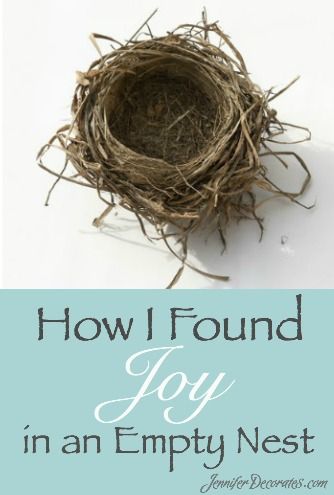 It is known what big investments - material, emotional and physical - the upbringing of children requires. And also a job, a career. And it turns out that people in their youth work a lot and take care of children. And they do not have enough strength to live in a pair. And when the children flit out, the spouses finally turn to each other and notice: "What an interesting person, it turns out, next to me!" At the same time, they already have more material opportunities than in their youth, and excellent prospects open up before them. Now they can develop together, they have become more experienced and interesting. nine0003
It is known what big investments - material, emotional and physical - the upbringing of children requires. And also a job, a career. And it turns out that people in their youth work a lot and take care of children. And they do not have enough strength to live in a pair. And when the children flit out, the spouses finally turn to each other and notice: "What an interesting person, it turns out, next to me!" At the same time, they already have more material opportunities than in their youth, and excellent prospects open up before them. Now they can develop together, they have become more experienced and interesting. nine0003  ..
..  But in fact, their childhood flies by very quickly. It is important for spouses to remember that they are a couple, and not just dad and mom. And to all of us - that life is given to us not only for the sake of children.
But in fact, their childhood flies by very quickly. It is important for spouses to remember that they are a couple, and not just dad and mom. And to all of us - that life is given to us not only for the sake of children. What is empty nest syndrome and how not to fall apart when there is no one else to take care of
When children have grown up and left home to live on their own, parents may experience difficult emotions. These experiences are called the empty nest syndrome. We understand what it is and whether it can be dealt with. What is empty nest syndrome
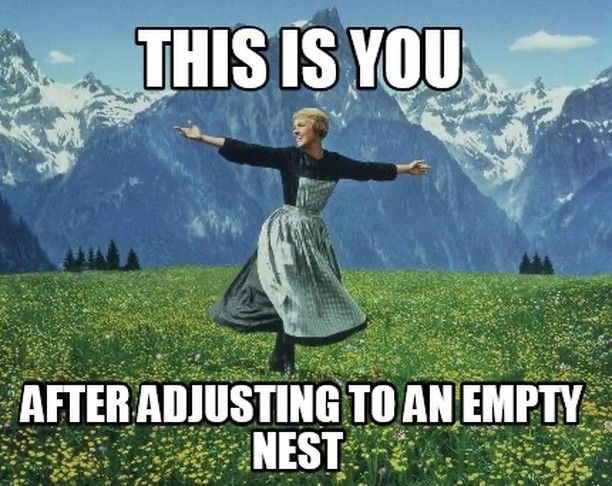 But this capacious figurative expression well describes the state of parents when their adult children left to study, got married or simply rented a house on their own and the house - the "nest" - was empty. nine0003
But this capacious figurative expression well describes the state of parents when their adult children left to study, got married or simply rented a house on their own and the house - the "nest" - was empty. nine0003 Why it occurs
Parents have no one else to take care of
Parents are bored and worried
 Will something happen to him? Will he get into trouble?
Will something happen to him? Will he get into trouble? Parents don’t have their own life
Where this state can lead
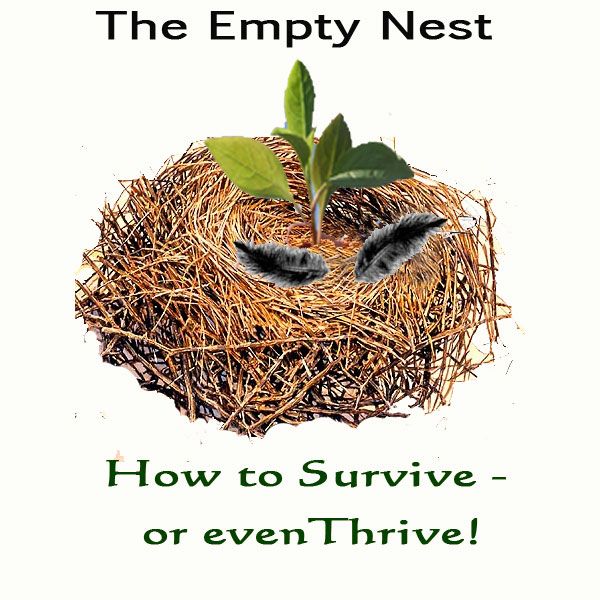
How to cope with surging emotions
Prepare in advance
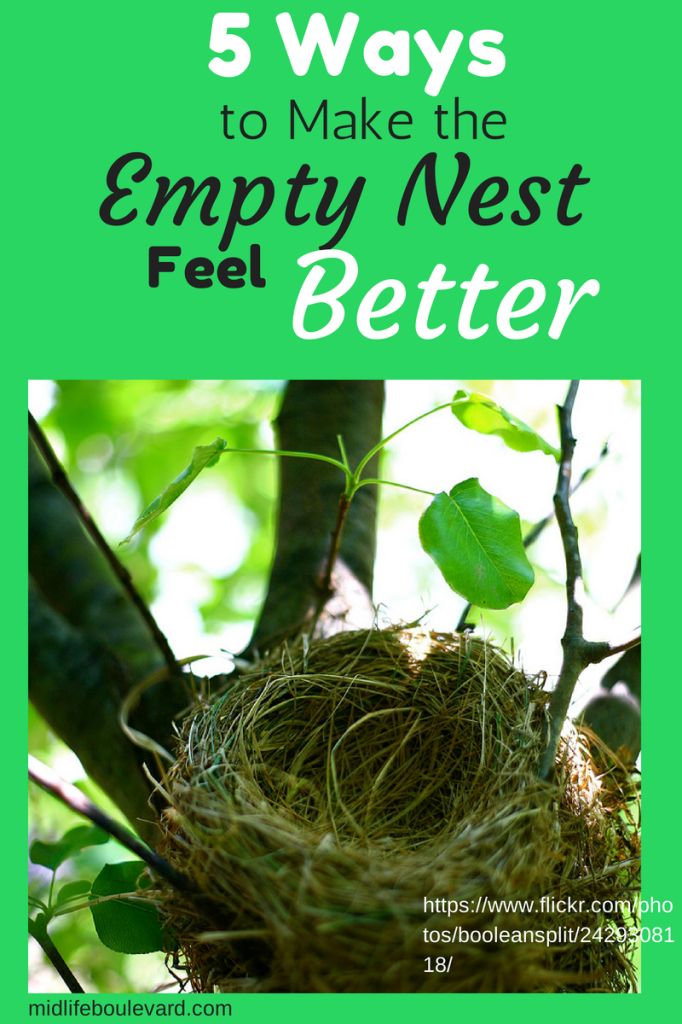 nine0003
nine0003 Try to let go of expectations
Stay in touch

Learn more







